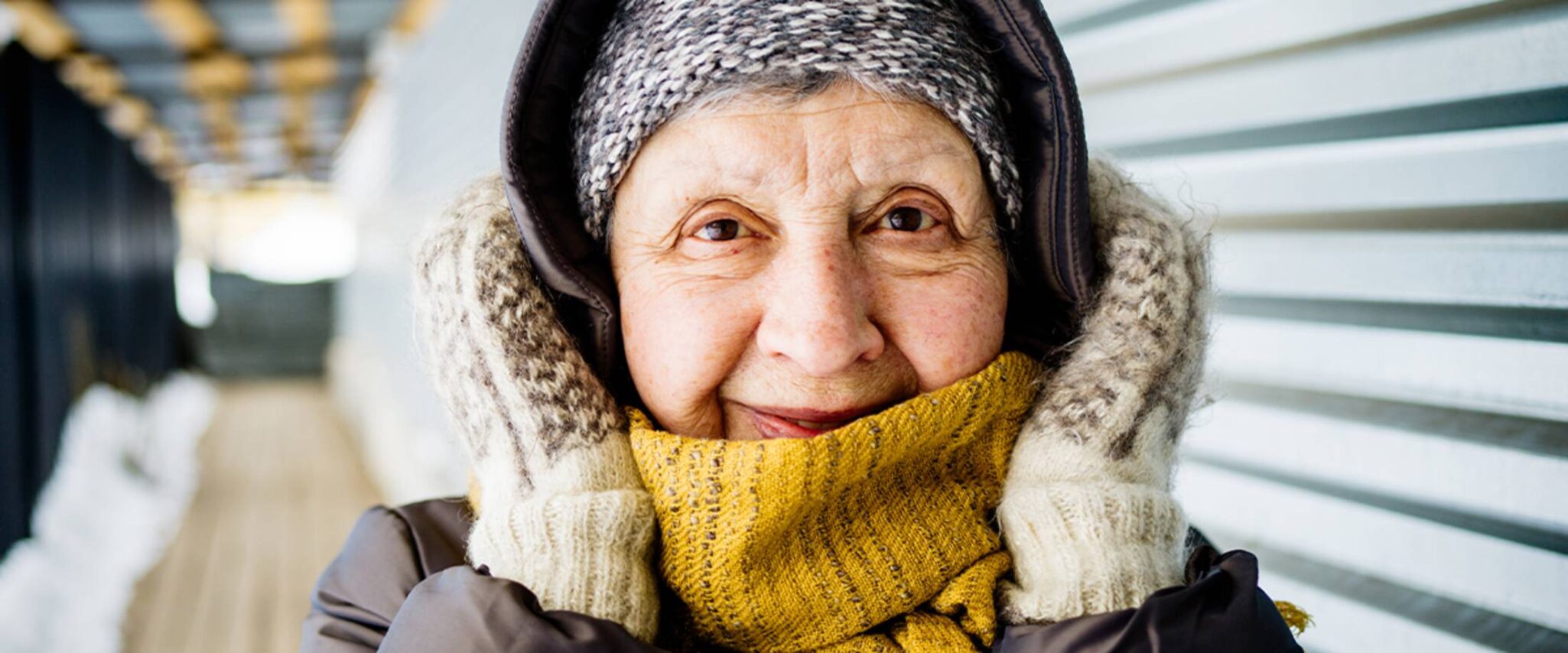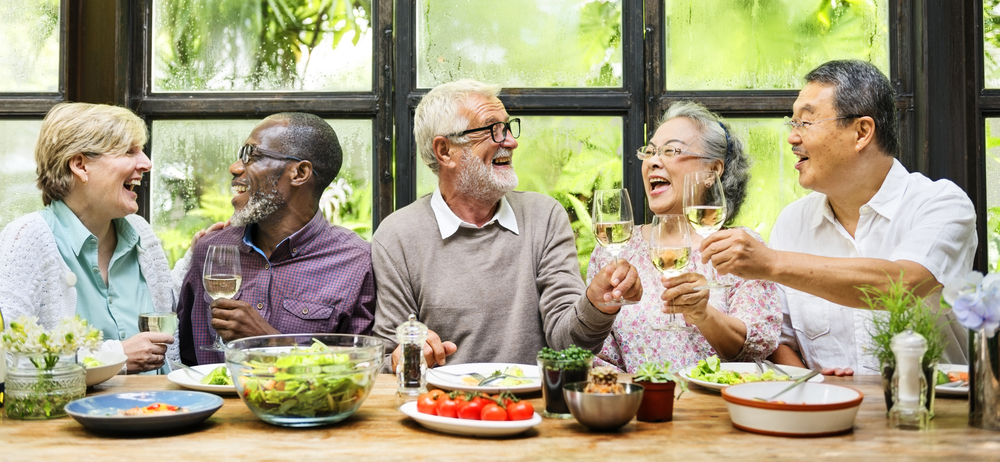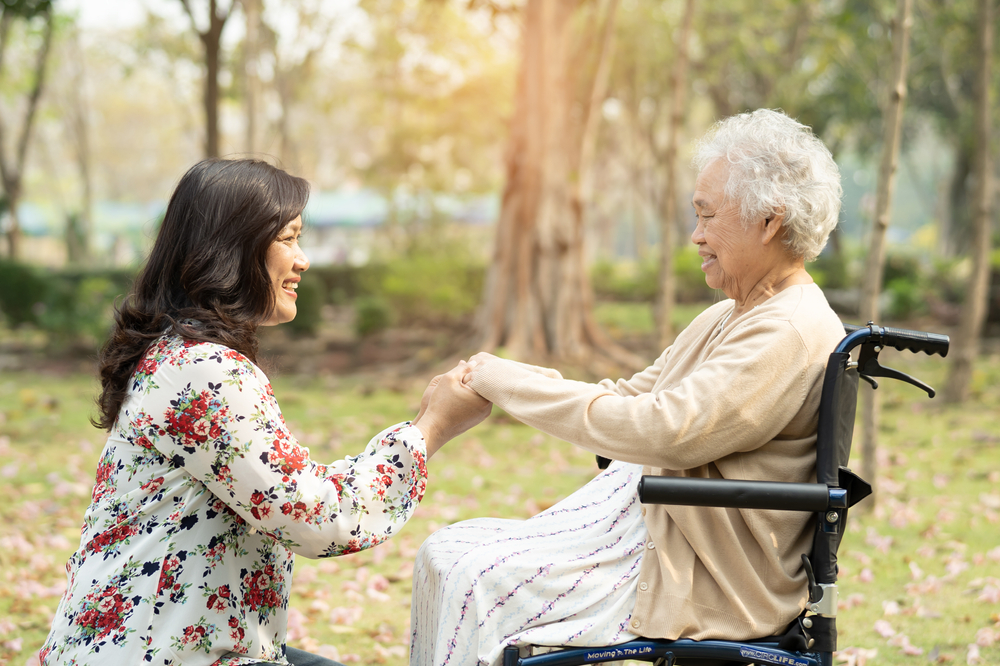Cold Weather Safety Tips for Seniors

Like every season, winter brings its own joys and challenges. Older adults can be particularly vulnerable during winter, so it’s important to highlight cold weather safety issues for seniors to help ensure they can focus on the joys to be found.
Here are five areas of winter safety seniors and their loved ones need to pay attention to:
Carbon Monoxide Poisoning
Carbon monoxide (CO) is a colorless, odorless poison gas that can have deadly consequences. According to the Centers for Disease Control and Prevention (CDC), the number of carbon monoxide-related deaths spikes during the winter months. Sources for CO in the home include:- Blocked flue pipes and chimneys
- Gas- and oil-burning furnaces
- Portable generators
- Pilot lights and gas flames
- Improperly installed forced air fans
- Install battery-operated CO detectors near every sleeping area.
- Check CO detectors regularly to make sure they’re functioning properly.
- Never use a generator inside your home or garage – even if doors and windows are open.
- Only use generators outside, and make sure they’re more than 20 feet away from doors and windows.
- If you have a fireplace, have the chimney inspected and cleaned to make sure there are no blockages.
- Have your furnace inspected every year.
Hypothermia
Cold weather safety for seniors includes preventing hypothermia, which occurs when your body’s temperature drops below 96° and stays low for a prolonged period of time. This can happen even in 60° weather. The National Institute on Aging (NIA) says that older adults are especially at risk for hypothermia because their ability to endure longer periods of time exposed to the cold is lowered with age. This can be due to several factors:- As you age, your body loses heat more quickly than it used to.
- Diabetes can keep blood from flowing properly.
- Thyroid problems can make it hard to maintain body temperature.
- Certain medications, including over-the-counter cold remedies, increase your risk.
- Diminished levels of activity means generating less body heat.
- Parkinson’s disease and arthritis make it harder to put on warm clothing.
- Don’t stay outside for very long.
- Dress in layers of loose clothing, which traps warm air in between the layers.
- Wear a hat, scarf, gloves or mittens and warm socks.
- Stay dry when outside, because wet clothing chills the body more quickly.
- Keep the house temperature to at least 68 to 70 degrees.
- Dress warmly indoors, if needed.
- Check with your doctor to see if any medications could increase the risk of hypothermia.
Frostbite
Frostbite is damage to the skin that goes down to the bone, and it’s caused by exposure to the cold. It primarily affects the nose, ears, chin, cheeks, fingers and toes. Older adults are more at risk of frostbite if they:- Take high blood pressure medication
- Have diabetes
- Smoke
- Have heart disease
- Take certain medications such as beta blockers or sleeping pills
- Have poor circulation
- Have a physical or mental condition that prevents them from dressing appropriately when it’s cold
Influenza
The CDC says that people age 65 and over are at a higher risk of developing complications from the flu than those in other age groups. In recent years, older adults accounted for 50 to 70% of hospitalizations for seasonal flu, and 70 to 85% of flu-related deaths.So one of the best winter safety tips for seniors is to get a flu vaccination. In fact, flu vaccines have reduced the risk of flu-related hospitalization among older adults by about 40%.The CDC recommends that people 65 and older get a flu shot, not a nasal spray vaccine. While you can get any vaccine approved for your age group, there are two vaccines specifically designed for seniors. Talk to your doctor about these options:- High-Dose Flu Vaccine: This has four times more antigen than a regular flu shot. Clinical trials found older adults who got this vaccine had 24% fewer influenza illnesses compared to those who received the standard dose vaccine.
- Adjuvanted Flu Vaccine: This is made with an additive that can create a stronger immune response to the vaccination. A review of vaccine trials found that older adults who received this type of vaccine had a significantly higher immune response than those who received the standard dose.
Falling
Falling is more than an embarrassing inconvenience for seniors. Falls are actually the leading cause of fatal and non-fatal injuries for older adults. Broken bones in the arm, wrist, ankle or hip are common, and can lead to loss of independence. Falls are also the most common cause of traumatic brain injury in seniors.Risk factors for falls include poor vision, chronic health conditions, use of multiple medications, previous falls, and even the fear of falling. To reduce the risk of falling:- Take it slow. Allow for extra time when walking in risky locations. It’s not always easy to see icy spots, so don’t be in a hurry to get in or out of the car or make that walk to the mailbox.
- Adapt your walking style. Walking more slowly and using a wider gait can help protect against falls.
- Dress appropriately. Wear shoes with treads and good traction. Dressing warmly, even when stepping outside “for just a minute” can help prevent exposure if you do fall on the driveway or sidewalk.
- Have your walkways and driveway cleared. Removing snow and ice significantly reduces your risk of falling.
- Create some traction. Tossing kitty litter or sand on the ground in front of you can add traction while you’re walking.
- Talk to your doctor. Have your doctor assess your personal risk for falling. A physician can help you develop an action plan that can reduce your risk.




